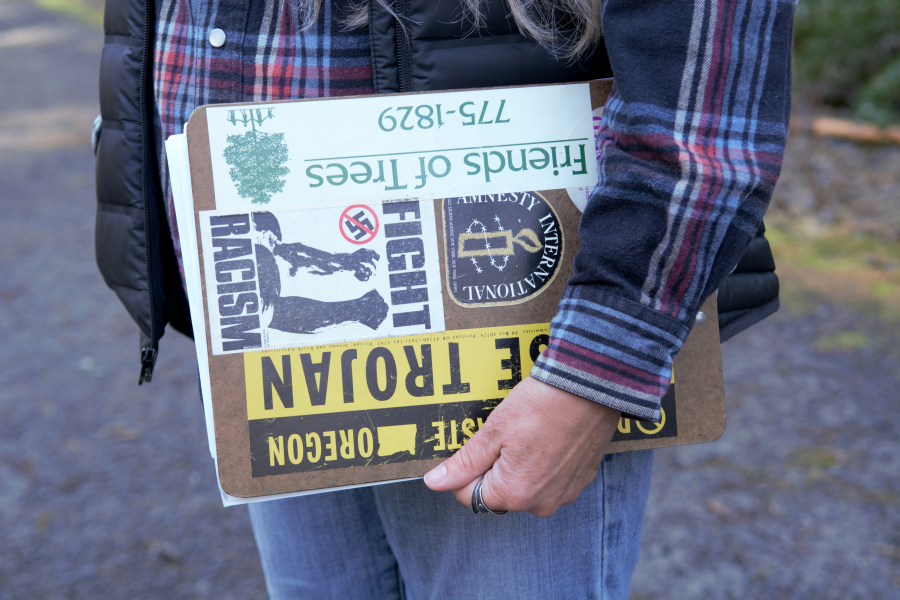In January, the state approved a land transfer of roughly 80 acres southwest of Yacolt to Clark County, marking the end of a yearslong effort to preserve the dense woods from proposed logging.
But the work from hundreds of advocates who made the transfer possible otherwise went unnoticed, left in the tangle of bureaucratic ribbons tying up the success.
And it all started with one voice.
“There were so many red flags for me,” Linda Lorenz of Vancouver said as she walked along Hantwick Trail recently, stopping to look at the collection of trees that were initially proposed to be clear cut. “I just said to myself, ‘This can’t happen.’ So, I sent up the alarms, you know? I just started calling people.”




